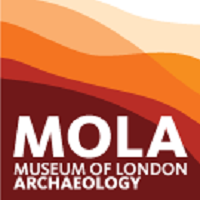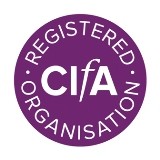AHRC Collaborative Doctoral Partnership PhD with University of Glasgow

Summary
Past in present soils: Leveraging development-led archaeological data to generate insights into urban soil development and soil health
Through our AHRC Collaborative Doctoral Partnership, Museum of London Archaeology (MOLA) aims to develop future leaders, specialists and advocates for archaeology, and extend our strong record of academic collaboration and engagement. This fully-funded PhD will be supervised by University of Glasgow’s Dr Rachel Opitz and Dr John MacDonald, with Dr Eduardo Machicado and Diego Rodrigo Maganto at MOLA.
Healthy soils are essential to a sustainable future. In today’s rapidly expanding urban contexts, they are fundamental to improving biodiversity and well-being, storing water, and supporting urban farming. While the immediate impacts of today’s human actions on soil health are readily grasped, the long-term effects of past human actions on soil are less well understood. Archaeology provides a critical long-term perspective of soil formation in urban landscapes. In dense urban areas like London, where human activity is concentrated, development-led archaeology also contributes to the discussion by providing up-to-date information on the status and character of urban soils (‘technosols’). Most of this information is not easily accessible to policymakers or other specialists on soil health.
This PhD aims to develop a conceptual and information model to bring together archaeological information on past and present urban soils and relevant research on soil health. The PhD candidate will compile, interpret, and repurpose archaeological and geotechnical data to develop the model. Ultimately, the project aims to produce a novel approach to connect knowledge about long-term human interaction with the pedosphere to more pragmatic, pressing concerns about soil health in the contemporary urban landscape.
Eligibility
We want to encourage the widest range of potential candidates for a CDP studentship and are committed to welcoming individuals from different backgrounds to apply. We particularly welcome applications from Black, Asian, Minority, Ethnic (BAME) backgrounds as they are underrepresented at this level in this area.
Applicants should ideally have or expect to receive a relevant Masters-level qualification or be able to demonstrate equivalent relevant experience in a professional setting. Areas include, but are not limited to, Archaeological Science, Anthropology, Geography, Geosciences, Environmental Sciences, or Information Studies. Applicants must be able to demonstrate an interest in the archaeology sector and potential and enthusiasm for developing skills more widely in related areas. For informal enquiries please contact the primary supervisor Rachel Opitz (Rachel.Opitz@glasgow.ac.uk).
Funding Notes
The doctoral training grant funds full-time studentships for 45 months (or part-time equivalent). The studentship can be extended for an additional 3 months to provide professional development opportunities, or up to 3 months of funding may be used to pay for the costs the student might incur in taking up professional development opportunities. The studentship covers (i) a tax-free annual stipend at the standard Research Council rate (currently £17,668 for 2022-3), (ii) £1000/year to enable collaboration with MOLA, (iii) an additional allowance from MOLA of up to £1000/year for research expenses, (iv) a CDP maintenance payment of £550/year, and (v) tuition fees at the UK rate.
Application deadline: 5 May 2023. Interviews take place during May 2023 and the studentship will start 1 October 2023. Further information on the University of Glasgow website.
 MOLA is a CIfA Registered Organisation
MOLA is a CIfA Registered Organisation

